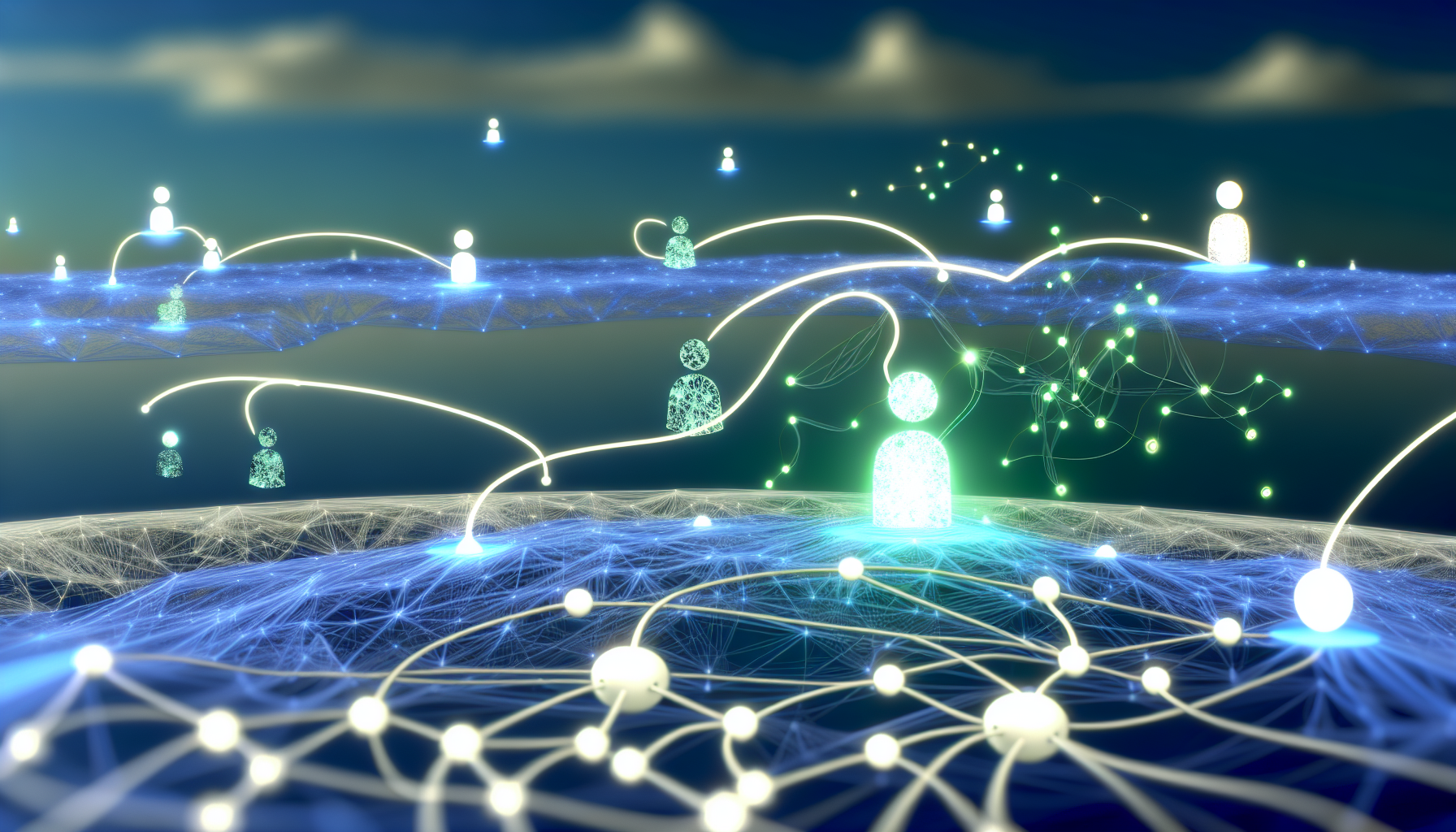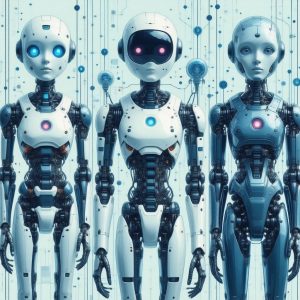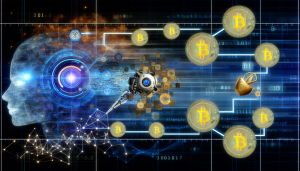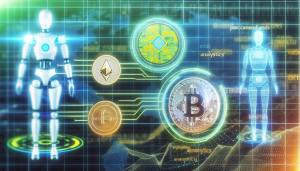The fusion of artificial intelligence (AI) with decentralized technologies like blockchains and decentralized autonomous organizations (DAOs) is revolutionizing how systems operate and make decisions. This integration leverages the strengths of both AI and decentralization to create more transparent, efficient, and autonomous systems. Let’s delve into how AI agents function within these decentralized ecosystems.
What Are AI Agents?
AI agents are software entities capable of performing tasks autonomously by perceiving their environment, making decisions, and taking actions to achieve specific goals. These agents utilize machine learning, natural language processing, and other AI technologies to simulate human-like intelligence.
Decentralized Environments Explained
Decentralized environments, such as blockchain networks and DAOs, operate without a central authority. They rely on distributed ledger technology to ensure transparency, security, and immutability of data. DAOs, in particular, are organizations governed by smart contracts and community consensus, enabling decentralized decision-making.
AI Agents in Blockchain Networks
Integrating AI agents with blockchain technology brings several advantages:
Enhanced Security and Transparency
AI agents can analyze transactions and network activities in real-time, identifying and mitigating potential threats. The immutable nature of blockchain ensures that the data AI agents use is trustworthy and tamper-proof, enhancing overall security.
Smart Contract Automation
AI agents can manage and execute smart contracts more efficiently. By interpreting complex contract terms and conditions, AI can ensure accurate execution, reduce errors, and adapt to changing circumstances without human intervention.
Data Analysis and Decision Making
Blockchain networks generate vast amounts of data. AI agents can process and analyze this data to provide insights, predict trends, and support decision-making processes within the network, enhancing its functionality and responsiveness.
AI Agents in DAOs
DAOs rely on collective decision-making and automated processes. AI agents play a crucial role in optimizing these operations:
Governance and Voting
AI agents can facilitate the governance of DAOs by managing voting processes, ensuring fairness, and preventing manipulation. They can analyze voting patterns, propose agenda items, and even suggest optimal solutions based on data-driven insights.
Resource Management
Effective resource allocation is vital for DAOs. AI agents can monitor resource usage, predict future needs, and allocate funds or assets efficiently, ensuring the DAO operates smoothly and sustainably.
Task Automation
Many operational tasks within DAOs can be automated by AI agents. From managing communications to coordinating project workflows, AI can handle repetitive tasks, allowing human members to focus on strategic initiatives.
Challenges and Considerations
While the integration of AI agents in decentralized environments offers significant benefits, it also presents challenges:
Scalability
As the number of AI agents and the complexity of tasks increase, ensuring the scalability of the underlying blockchain infrastructure becomes essential to maintain performance and efficiency.
Security Risks
Although blockchain enhances security, AI agents themselves can be targets for attacks. Ensuring that AI systems are robust against vulnerabilities is crucial to protect the entire decentralized ecosystem.
Ethical Considerations
AI agents must operate within ethical boundaries, respecting privacy, fairness, and transparency. Establishing guidelines and oversight mechanisms is necessary to prevent misuse and ensure responsible AI deployment.
The Future of AI in Decentralized Systems
The synergy between AI and decentralized technologies holds immense potential. As advancements continue, we can expect more sophisticated AI agents that enhance the autonomy, efficiency, and intelligence of blockchain networks and DAOs. Innovations such as decentralized AI marketplaces, where AI models are traded and improved collaboratively, and AI-driven DAOs that can adapt dynamically to changing environments, are on the horizon.
In conclusion, the operation of AI agents within decentralized environments like blockchains and DAOs is paving the way for more intelligent and autonomous systems. By leveraging the strengths of both AI and decentralization, these integrations are set to transform industries, enhance security, and foster innovative governance models.



